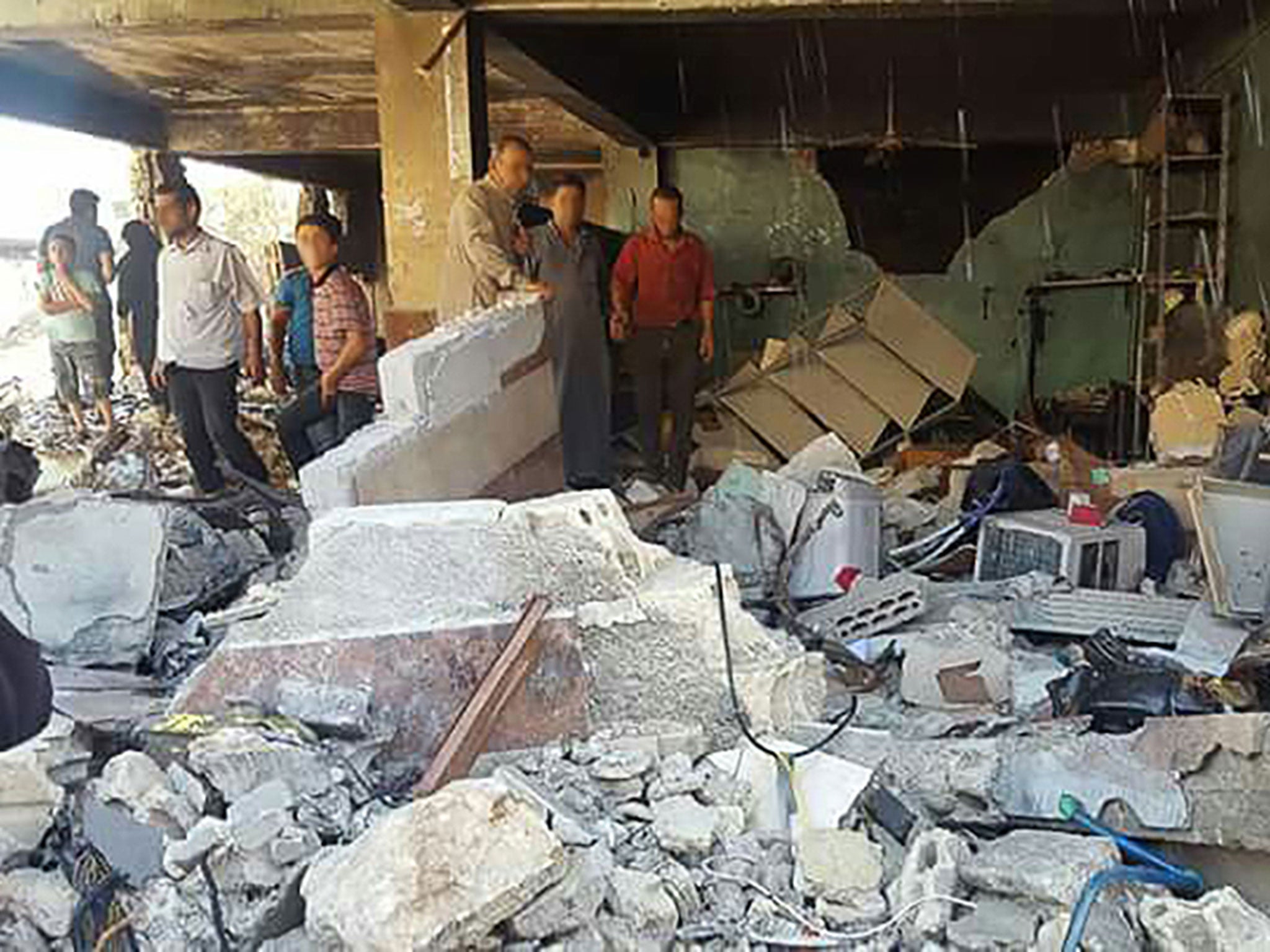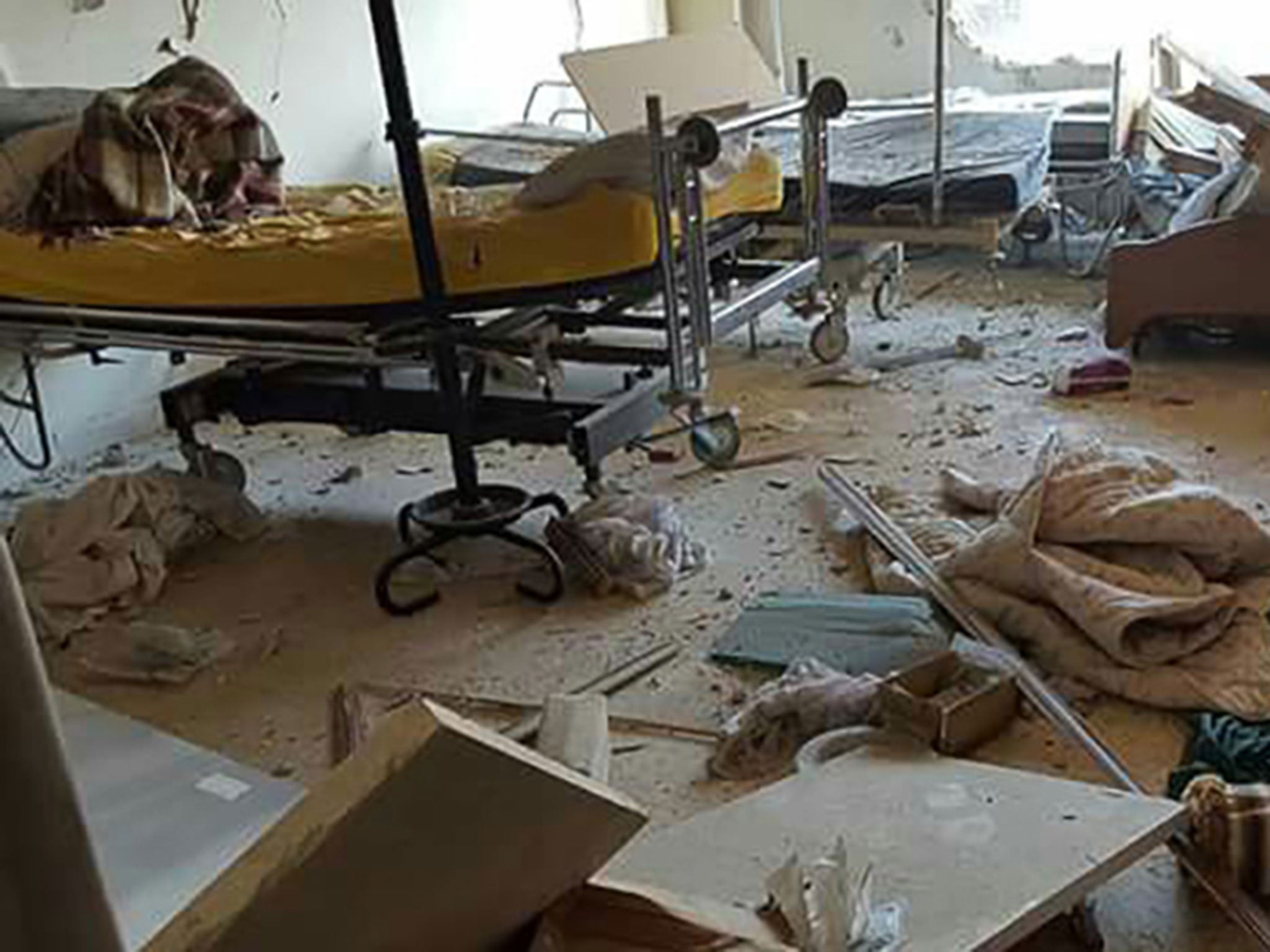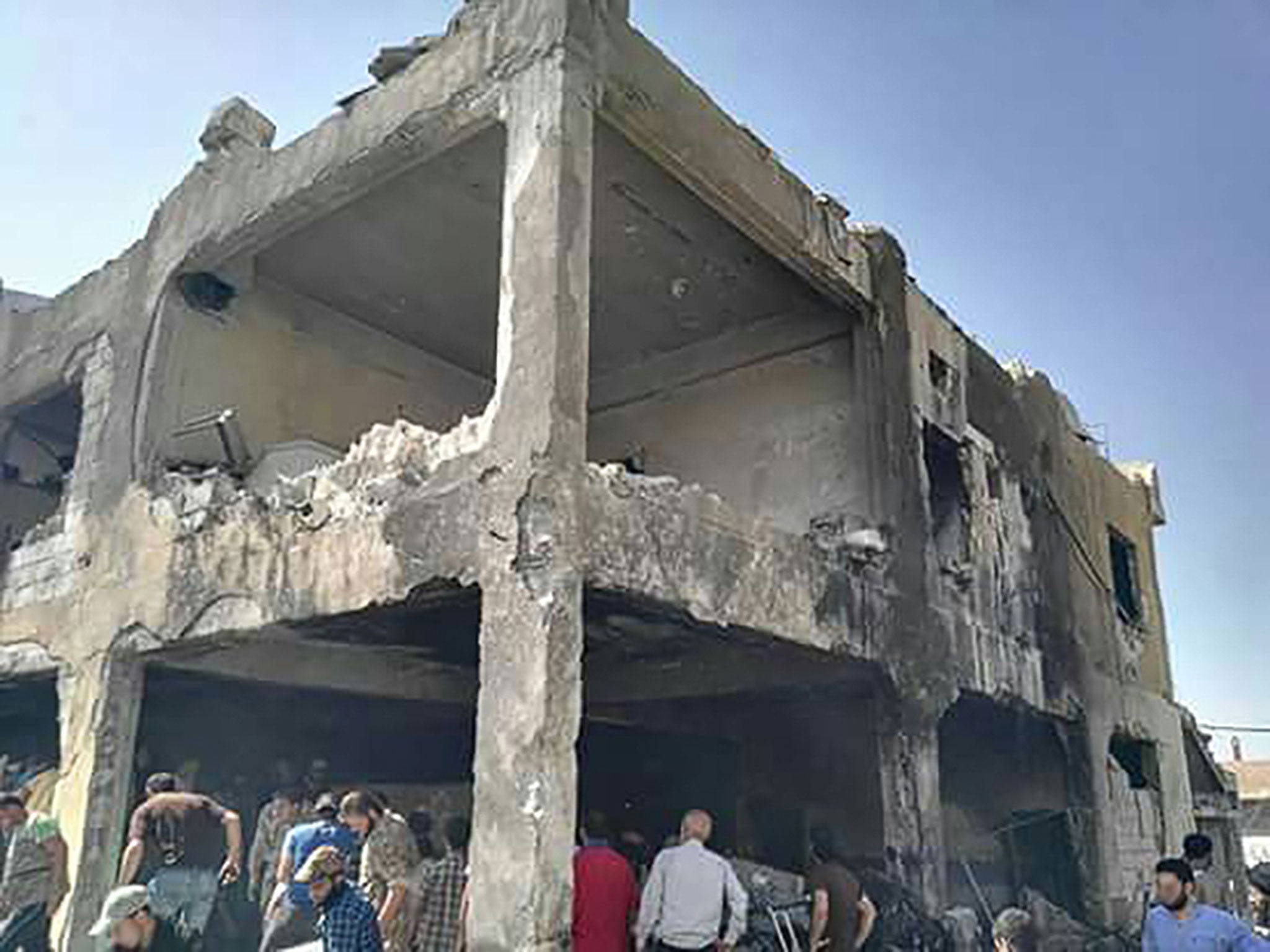Syrian war: Five children killed as MSF hospital destroyed in latest air strike to hit vital medical facilities
The charity said 13 people including two women and four staff were killed in Millis, Idlib

Five children have been killed in the latest air strike on a hospital in Syria, destroying a vital operating theatre and intensive care unit.
The hospital in Millis, Idlib province, is supported by the charity Doctors Without Borders (MSF), which condemned the attack as “an outrage”.
Doctors said at least 13 people, including five children, two women and four staff, were killed when the hospital was hit by two direct air strikes and two more nearby at around 2pm local time on Saturday.

The bombing destroyed most of the building, reducing its operating theatre, intensive care unit and paediatric department to rubble, while putting around 80 per cent of medical equipment, ambulances and a generator out of service.
The hospital provided care for around 70,000 civilians living in the area, where thousands of displaced people have moved to escape fighting along front lines elsewhere in northern Syria.
Dr Silvia Dallatomasina, the medical manager of MSF operations in north-west Syria, called the strike “an outrage”.
“We have to admire the courage and dedication of Syrian medics continuing to work in the midst of a war where hospitals are so regularly hit in bombing and shelling attacks; and we have a strong sense of obligation to support them in their essential life-saving work,” she said.
“Each time a hospital is destroyed, whether it is targeted or in an indiscriminate attack on civilian areas, it deprives Syrians of another lifeline of healthcare.”

Millis hospital, which treated around 250 patients every day, remains closed.
There was no immediate confirmation of who was behind the bombing but the Syrian regime or its Russian allies were suspected.
No air strikes in the region were listed by the US-led coalition in its round-up of operations on 6 August, when planes hit targets in northern Manbij and Deir ez-Zor in eastern Syria.
Bashar al-Assad’s forces have recently been focusing on Idlib province and neighbouring Aleppo, where rebel groups including the former al-Qaeda affiliate Jabhat al-Nusra hold swathes of territory and have launched successful offensives against the regime.
Nusra, which has recently changed its name to Jabhat Fateh al-Sham and claimed to cut ties with the international terror group, has been a key target of Russian and Syrian strikes, while the US-led coalition has focused on Isis.
There has been international outcry over the increasingly frequent destruction of medical facilities in Syria, including a maternity hospital supported by Save the Children that was severely damaged last month.
Amnesty International has condemned a “despicable pattern of unlawful attacks deliberately targeting medical facilities” in rebel-controlled areas, while the UN has called on all sides in the Syrian civil war to respect international law.
“We repeat our urgent call to all those with influence on the conduct on the war in Syria, including the four out of five UN Security Council permanent members that are participants in the war, to urgently effect change to stop hospitals being hit in the course of the fighting,” Dr Dallatomasina said.
“As humanitarian medics, we will continue to do all we can to boost medical care in Syria, but we need to see an immediate end to attacks on hospitals.
Join our commenting forum
Join thought-provoking conversations, follow other Independent readers and see their replies
Comments